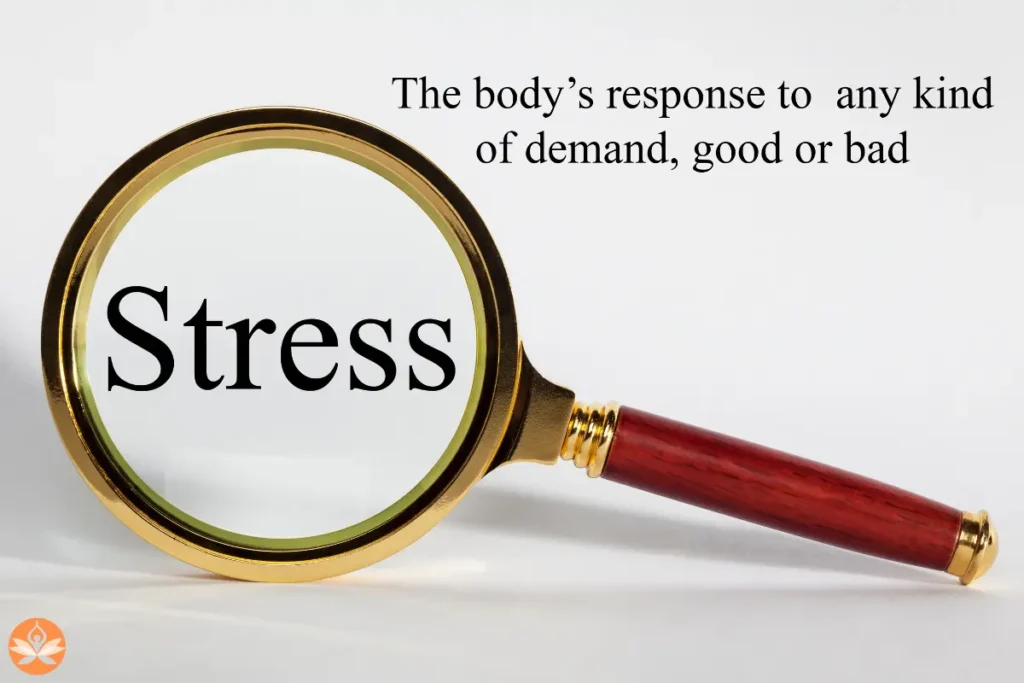The Link Between Overcoming Stress and a Success Mindset
Stress and anxiety are common feelings that many people confront daily. These feelings can cloud judgment, create self-doubt, and obstruct the path to success. However, learning how to overcome these challenges can significantly enhance your success mindset. Understanding this process is essential, as it not only affects personal well-being but also plays a crucial role in unlocking potential for achievement.
When you understand how to manage and reduce stress and anxiety, it allows you to focus better on your goals. A success mindset is rooted in clarity and purpose, which can be obscured by negative emotions.
Building Resilience
Overcoming stress fosters resilience, an essential trait for any successful individual. Resilience is the ability to bounce back from setbacks. Here’s how to build it:
- Acknowledge Your Emotions: Recognizing feelings of stress is the first step. Awareness allows you to address them effectively.
- Develop Coping Strategies: Find activities that relieve stress, such as exercise, meditation, or hobbies. These activities shift your focus and energize your mind.
- Set Realistic Goals: Break down larger tasks into manageable parts. Achieving small milestones builds confidence and keeps anxiety at bay.
As you cultivate resilience, you become better equipped to handle challenges. Challenges no longer seem insurmountable but are instead viewed as opportunities for growth. This shift in perspective is a vital component of a success mindset.
Enhancing Focus and Clarity
Stress often leads to distractions and confusion. When you work to overcome these feelings, clarity emerges. Clear thoughts pave the way for targeted action toward your goals. To enhance focus and clarity:
- Practice Mindfulness: Mindfulness techniques, such as deep breathing, keep you anchored in the present moment, reducing anxiety about past or future events.
- Limit Distractions: Create an organized workspace. Minimize noise and interruptions to maintain concentration on your tasks.
- Prioritize Tasks: Use a to-do list to prioritize tasks. This helps you stay on top of responsibilities without feeling overwhelmed.
Having a clear mind allows you to take strategic actions toward your objectives. The less mental clutter you have, the better decisions you can make.
Strengthening Your Self-Confidence
A success mindset thrives on self-confidence, which can be severely hindered by stress and anxiety. By overcoming these emotions, your confidence levels can skyrocket. Here’s how to strengthen self-confidence:
- Celebrate Small Wins: Acknowledge and reward your achievements, no matter how small. This habit reinforces belief in your abilities.
- Embrace Failure: Understand that failure is a part of growth. Learning from mistakes reduces fear of trying new things.
- Surround Yourself with Positivity: Engage with supportive people who encourage your dreams. Positivity breeds more positivity.
As you build your self-confidence, you become more willing to take risks that can lead to greater success. This newfound courage fuels your ambition and propels you forward.
Fostering a Growth Mindset
Overcoming stress and anxiety encourages the development of a growth mindset. A person with a growth mindset believes they can improve through effort and learning. Here are steps to foster this mindset:
- Seek Feedback: Open yourself to constructive criticism. Feedback helps you grow and improves your skills.
- Commit to Lifelong Learning: Pursue new knowledge through courses, books, or workshops. This commitment ensures continuous improvement.
- Cultivate Curiosity: Stay curious about the world around you. A curious mind leads to new ideas and innovative solutions.
By fostering a growth mindset, you turn challenges into stepping stones. This shift fuels your desire to succeed, keeping you motivated even in tough times.
The interplay between overcoming stress, managing anxiety, and cultivating a success mindset is undeniable. As you learn techniques to reduce stress and increase clarity, your capacity for success multiplies. Develop resilience, enhance your focus, boost your self-confidence, and foster a growth mindset. All of these elements interconnect to create a powerful framework for achieving your dreams.

Practical Techniques for Managing Anxiety in High-Pressure Situations
High-pressure situations can trigger anxiety and stress, affecting your performance and decision-making abilities. Learning how to manage anxiety effectively is essential not only for your mental well-being but also for achieving success in your personal and professional life. Here are some practical techniques to help you navigate anxious moments with confidence and poise.
Understanding the Trigger
Before diving into techniques, it’s important to recognize what specifically causes your anxiety. Understanding your triggers will help you tailor your response strategies. Here are a few common triggers:
- Public speaking
- Time constraints
- Interpersonal conflicts
- Performance evaluations
Breathing Exercises
One of the simplest yet most effective methods for calming anxiety is controlled breathing. Here’s a quick technique you can use:
- Find a quiet space.
- Close your eyes and take a deep breath in through your nose for a count of four.
- Hold your breath for a count of four.
- Exhale slowly through your mouth for a count of six.
- Repeat this process until you feel more relaxed.
Deep breathing helps increase oxygen flow and reduces tension, making it an excellent tool for stress management.
Visualization Techniques
Visualization is a powerful technique that involves picturing a positive outcome. Before entering a high-pressure scenario, take a moment to visualize yourself succeeding. Picture every detail—from your confident body language to the happy audience. This technique not only enhances your self-belief but prepares your mind for a successful experience.
Progressive Muscle Relaxation
Progressive Muscle Relaxation (PMR) is another effective method to manage anxiety. It involves tensing and then relaxing different muscle groups in your body. Here are the steps:
- Find a comfortable position.
- Start by clenching your fists for 5 seconds, then release.
- Move up to your arms, shoulders, and carry on to your legs and feet.
- Imagine the tension leaving your body as you relax each muscle group.
This practice can significantly reduce physical tension and improve your overall emotional state.
Mindfulness and Meditation
Mindfulness involves focusing on the present moment without judgment. By learning to observe your thoughts and feelings, you create space for managing anxiety. Regular meditation practice can improve your focus and resilience during stressful times. Start with just a few minutes a day and gradually increase the duration as you get comfortable.
Time Management Skills
Effective time management can reduce stress levels significantly. Here’s how to improve your time management:
- Set clear, achievable goals.
- Prioritize your tasks using the Eisenhower Matrix, categorizing tasks by urgency and importance.
- Avoid procrastination by breaking larger tasks into smaller, manageable steps.
By feeling more in control of your tasks, you can greatly decrease your anxiety in high-pressure situations.
Positive Affirmations
Positive affirmations are statements that challenge negative thoughts, helping you cultivate a more optimistic mindset. Before a stressful situation, repeat phrases such as:
- I am capable and prepared.
- I can handle whatever comes my way.
- I believe in myself and my abilities.
Saying these affirmations aloud helps reinforce your confidence and puts you in a more successful frame of mind.
Seeking Social Support
Talking to someone you trust can significantly alleviate anxiety. Sharing your worries can provide comfort and perspective. Consider reaching out to:
- Friends or family members
- Counselors or therapists
- Support groups or mentors
Connecting with others can remind you that you’re not alone, helping to diffuse some of the anxiety you feel.
Managing anxiety in high-pressure situations is crucial for maintaining your performance and enhancing your overall well-being. Implementing these techniques consistently can help you cultivate a resilient mindset. Start small, practice regularly, and watch how your confidence and success soar.
How Mindfulness Practices Enhance Your Success Mindset
In today’s fast-paced world, cultivating a success mindset is essential for thriving both personally and professionally. One way to enhance this mindset is through mindfulness practices. These techniques not only foster a sense of well-being but also improve focus and clarity, setting the stage for achieving your goals. Mindfulness encourages you to stay present, thus enabling you to tackle challenges with a calm and collected approach.
When you practice mindfulness, you develop a deeper understanding of your thoughts and emotions. This self-awareness is a critical component of a success mindset. Instead of reacting impulsively to stressors, you learn to pause, assess, and respond thoughtfully. This shift in perspective helps you maintain control over your actions and decisions.
Several mindfulness techniques can significantly boost your success mindset. Let’s explore some of these practices:
- Meditation: Engaging in meditation for just a few minutes daily can clear your mind and enhance your focus. This practice helps you stay centered and reduces anxiety, allowing you to embrace opportunities rather than fear challenges.
- Breathing Exercises: Simple breathing techniques help reduce stress and ground you in the present moment. By paying attention to your breath, you can calm your mind, making it easier to think clearly and make sound decisions.
- Gratitude Journaling: Writing down what you are grateful for shifts your focus from negative thoughts to positive experiences. This practice not only elevates your mood but also motivates you to pursue your goals with enthusiasm.
- Mindful Walking: Take a few moments each day to go for a mindful walk. Focus on your surroundings, the feeling of your feet on the ground, and the rhythm of your breath. This practice grounds you and enhances your mental clarity.
- Body Scan: Performing a body scan entails paying attention to each part of your body, noticing any tension or discomfort. This practice promotes relaxation and brings awareness to areas that may be holding stress, allowing for emotional release.
Integrating these practices into your daily routine can lead to remarkable changes in your mindset. Mindfulness not only decreases anxiety and stress but also nurtures resilience, enabling you to handle setbacks more effectively.
Another crucial aspect of mindfulness is its role in improving concentration. When you train your mind to be present, distractions fade away. Enhanced focus translates to better productivity, setting you on the path to achieving your goals faster. By practicing mindfulness, you sharpen your ability to prioritize tasks, and you become more efficient in your work, ultimately contributing to your success.
Furthermore, mindfulness fosters emotional intelligence, a key element in developing a strong success mindset. By understanding your emotions better, you can communicate effectively and collaborate with others harmoniously. This skill is vital in leadership and teamwork, as it helps you connect with people on a deeper level, building lasting relationships that can propel you forward in your career.
Implementing mindfulness practices may seem daunting at first, but the benefits are substantial. Start small; dedicate just five minutes each day to practice. Here’s a simple plan to get you started:
| Day | Practice | Duration |
|---|---|---|
| 1 | Meditation | 5 minutes |
| 2 | Breathing Exercises | 5 minutes |
| 3 | Gratitude Journaling | 5 minutes |
| 4 | Mindful Walking | 10 minutes |
| 5 | Body Scan | 10 minutes |
As you progress, gradually increase the time spent on each practice, and soon, you’ll notice a marked improvement in your mindset. You may even find that mindfulness becomes a cherished part of your routine, enriching your life and sharpening your focus.
Ultimately, the integration of mindfulness into your lifestyle can profoundly influence your success mindset. By overcoming stress and building resilience, you create a solid foundation for personal and professional growth. Embrace mindfulness practices today, and watch as your success flourishes.

The Role of Resilience in Achieving Your Goals
Success is not merely driven by talent or opportunities; it’s significantly influenced by your ability to bounce back from failures and challenges. Resilience plays a crucial role in achieving your goals and helps you maintain your focus even during tough times. When you cultivate resilience, you develop the mental strength to transform setbacks into opportunities for growth.
Understanding Resilience
Resilience is your capacity to recover quickly from difficulties. It involves adapting well to adversity, trauma, and stress. When life throws obstacles your way, a resilient individual can navigate through them and stay on course towards their aspirations. This quality fosters a positive mindset, allowing you to view challenges as stepping stones rather than barriers.
The Importance of Resilience in Goal Achievement
When pursuing your goals, it’s essential to recognize that challenges are a part of the journey. Resilience can significantly impact your ability to overcome these challenges, allowing you to achieve your ambitions more effectively. Here’s how resilience contributes to your success:
- Stronger Problem-Solving Skills: Resilient individuals are often better problem solvers. They approach issues with a constructive mindset, analyzing what went wrong and developing solutions rather than dwelling on the setback.
- Increased Motivation: Resilience fuels your motivation. Instead of giving up after a setback, resilient people are more likely to dig deep and persist, pushing through adversity to reach their goals.
- Emotional Regulation: Resilient people know how to manage their emotions. They can keep calm under pressure, allowing them to think clearly and make decisions that align with their long-term goals.
- Building a Growth Mindset: Resilience fosters a growth mindset, which is crucial for learning from experiences. Instead of seeing setbacks as failures, individuals learn valuable lessons that help them grow.
Developing Resilience
Just like any other skill, resilience can be developed and strengthened over time. Here are some practical ways to nurture resilience:
- Practice Mindfulness: Engaging in mindfulness practices can help you stay present and reduce stress. Techniques like meditation and deep-breathing exercises allow you to respond to challenges with a calmer mindset.
- Set Realistic Goals: Break your goals into achievable steps. This approach not only makes them less daunting but also allows you to celebrate small victories along the way.
- Foster Supportive Relationships: Surround yourself with supportive people. Build a network of friends, family, or mentors who encourage you and provide guidance during challenging times.
- Embrace Adaptability: Learn to be flexible with your plans. Sometimes the road to success changes, and being open to adjustments can prevent frustration.
Connecting Resilience with Success
The link between resilience and success can be illustrated through a simple model:
| Success Factor | Resilience Contribution |
|---|---|
| Goal Setting | Enables you to navigate obstacles while staying focused on the end goal. |
| Perseverance | Encourages you to push through failures instead of giving in to defeat. |
| Learning from Mistakes | Promotes a mindset of growth where every failure is an opportunity for learning. |
| Time Management | Helps maintain balance, ensuring you allocate time for self-care amidst pursuing goals. |
Real-life Examples of Resilience Leading to Success
History is filled with remarkable individuals who exemplified resilience as they pursued their dreams:
- J.K. Rowling: Before Harry Potter became a global phenomenon, Rowling faced numerous rejections and hardships but relied on her resilience to push forward.
- Oprah Winfrey: Overcoming a challenging childhood, Winfrey’s resilience helped her build a successful media empire.
- Thomas Edison: Edison’s famous quote, “I have not failed. I’ve just found 10,000 ways that won’t work,” perfectly encapsulates how resilience leads to eventual success.
Understanding and nurturing resilience can create a profound impact on your journey toward achieving your goals. By adopting practices that enhance your resilience, you position yourself to navigate adversity effectively, turning challenges into opportunities for growth and success.
Personal Stories: How Conquering Stress Transformed Lives and Careers
Stress is a common part of life, but it can profoundly affect our well-being and careers. Many individuals have found transformative paths by learning to conquer their stress. Personal stories often illustrate how managing stress not only enhances mental health but also positively impacts professional success.
One inspiring story comes from Sarah, a corporate manager. Throughout her 30s, she struggled with overwhelming stress from long hours and high expectations. This stress started affecting her health, leading to sleepless nights and anxiety. Recognizing the toll it was taking, she decided to seek help. She engaged in therapy and explored mindfulness practices, such as meditation and yoga.
By conquering her stress, Sarah noticed a significant shift in her mindset. With reduced anxiety, she became more productive at work, landing a major project that boosted her career. Her story exemplifies how taking control of stress can open doors to new opportunities, making room for growth and success.
Similarly, Mark’s experience shows the impact of stress management on career progression. As an entrepreneur, he faced mounting pressure to meet deadlines, leading to frequent burnout. After experiencing a breakdown, Mark sought professional guidance and implemented a work-life balance approach, prioritizing regular breaks and time off.
This change allowed him to reconnect with his passion for innovation. He developed a new product that not only made his company stand out but also rekindled his enthusiasm. Mark now advocates for balancing work and personal life, demonstrating that overcoming stress can enhance creativity and drive in the workplace.
In another case, Lila, a teacher, faced significant stress from her demanding job and balancing family life. The constant pressure left her feeling drained. Lila decided to attend a stress management workshop that introduced her to strategies like deep breathing and time management skills.
Implementing these techniques transformed her classroom environment and personal life. Her newfound calmness allowed her to connect better with her students, leading to improved learning outcomes. By mastering stress, Lila not only found personal happiness but also became a role model for her students.
Stress management can come in various forms; understanding what works best for you is crucial. Here are some effective strategies:
- Meditation and Mindfulness: These practices help ground you and reduce anxiety.
- Physical activity: Regular exercise boosts endorphins, the body’s natural stress relievers.
- Time management: Learning to prioritize tasks can reduce feelings of overwhelm.
- Seeking professional help: Therapy or counseling can provide tools and support for managing stress.
- Building a support network: Surrounding yourself with supportive friends and family can ease pressure.
Overcoming stress is a journey that varies from person to person. It’s essential to recognize that you are not alone in this struggle and that there are resources available to help. Each individual story contributes to a larger narrative about resilience and transformation.
The success stories of individuals like Sarah, Mark, and Lila reveal how conquering stress can lead to significant life changes. Their experiences remind us that stress does not define us; rather, it offers a call to action. By addressing stress head-on, you can unlock potential opportunities for personal and professional growth.
| Individual | Career Role | Stress Factor | Strategy Used | Results |
|---|---|---|---|---|
| Sarah | Corporate Manager | Long hours, High expectations | Therapy, Mindfulness | Increased productivity, Major project success |
| Mark | Entrepreneur | Deadlines, Burnout | Work-life balance | New product launch, Renewed passion |
| Lila | Teacher | Work-family balance | Stress management workshop | Improved classroom environment, Personal happiness |
As these stories illustrate, overcoming stress can unlock your full potential and lead to success in various areas of life. Remember, the journey might be challenging, but the transformation is worth it! Taking steps to manage stress can pave the way for not only success in your career but also a fulfilled and happy life.
Conclusion
Overcoming stress and anxiety plays a crucial role in cultivating a success mindset. As we’ve seen, the link between managing these challenges and achieving personal and professional goals is profound. Employing practical techniques for managing anxiety, such as deep breathing, time management, and positive visualization, equips you with the tools to thrive even in high-pressure situations.
Additionally, integrating mindfulness practices into daily routines not only calms your mind but also centers your thoughts, allowing for clearer decision-making and improved focus. This enhanced mental clarity fosters a stronger success mindset, empowering you to pursue your aspirations with confidence.
Resilience is another valuable asset on this journey. Embracing setbacks as opportunities to learn rather than barriers to success encourages personal growth and strengthens your determination. Many individuals who have conquered their stress report remarkable transformations in both their lives and careers. These personal stories serve as powerful reminders that overcoming stress isn’t just about feeling better—it’s about unlocking your full potential.
By prioritizing your mental well-being and consistently applying these strategies, you open the door to a success mindset that not only drives you toward your goals but also enriches your overall quality of life. Remember, every step you take toward overcoming stress is a step toward embracing a brighter, more successful future.










